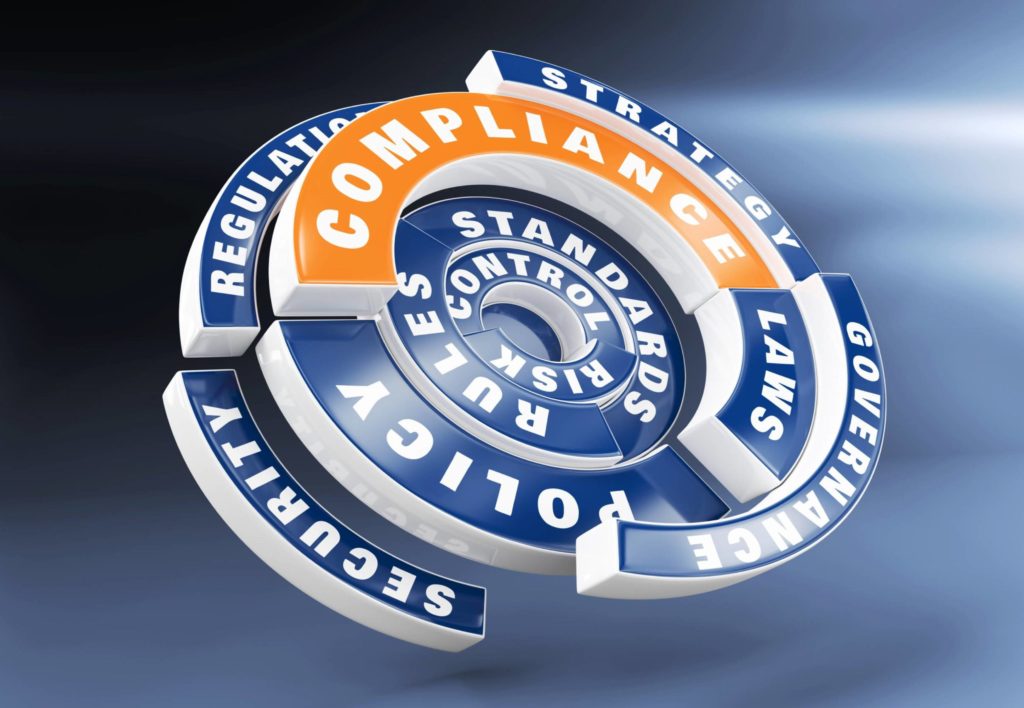What is the Automated Commercial Environment (ACE)?
ACE offers the trade community a simplified process for submitting data and interacting with CBP and Partner Government Agencies (PGAs)
The U.S. Customs and Border Protection (CBP) sets up the Automated Commercial Environment (ACE) as the central body that interconnects and coordinates the electronic data interchange systems of CBP, Partner Government Agencies (PGA), and trade community to facilitate more efficient and faster processing of exports and imports while promoting national security by efficient monitoring and counteract illegal transactions and activities.
ACE offers a centralized Single Window System where the trade community can submit their common data and documentation, such as commercial invoices, certificates of origin, export/import trade declarations and customs manifest declarations, once and simultaneously to CBP and PGAs for admissibility review, and thus dramatically reduce processing time, operational cost, and eliminate redundancy. This portal system is known as the ACE Secure Data Portal.
The importation of goods into the United States is generally a two-part process consisting of:
1 ) Filing the cargo release documents necessary to determine whether merchandise may be released from U.S. Customs and Border Protection (CBP) custody, and 2 ) Filing the entry summary documents that pertain to merchandise classification, duty, taxes, and fees.
Currently, over 99 percent of all entry summaries are filed electronically using the Electronic Data Interchange (EDI). This transition away from paper-based procedures results in faster, more streamlined processes for both government and industry. The interface system that allows EDI transmissions to CBP’s automated systems is the Automated Broker Interface (ABI).
In-Depth Coverage: Country of Origin
- Country of Origin of Imported Merchandise
- Customs Ruling: Country of Origin
- Country of Origin: Food Products
- Country of Origin: Chemical and Pharmaceutical Products
- Country of Origin & Country of Manufacture: CBP vs. FDA
- Country of Origin: Substantial Transformation or Country of Assembly Test
- Country of Origin and Free Trade Agreement
- Country of Origin and Section 301
What is the Automated Broker Interface (ABI)?
The Automated Broker Interface (ABI), an electronic data interchange (EDI) system, is a key component of the ACE, which allows qualified participants to electronically file required import data with CBP. ABI software connects directly to ACE to facilitate the information exchange between the trade community and CBP and Partner Government Agencies (PGAs).
ABI is a voluntary program available to brokers, importers, carriers, port authorities, and independent service centers.
The ACE Secure Data Portal itself does not have functionalities for entry and entry summary filing. The ABI continues to be the only approved method available for filing entry and entry summaries in ACE. ACE-certified ABI software is available through CBP-approved software vendors. CBP has published a list of approved vendors of ABI software and other IT services.
ABI expedites the release of merchandise for the trade community.
Entry summaries are electronically transmitted, validated, confirmed, corrected, and paid. Administrative messages keep participants informed of all current information and issues.
Participants can query quota status, visa requirements, manufacturer information, and entry/entry summary processing status.
ABI allows filers to pay multiple entries with one payment transaction through statement processing.
ABI filers can also pay customs duties, fees, and taxes electronically through the Automated Clearinghouse (ACH).
In-Depth Coverage: Importing Medical Device
With ABI you can:
- File entry release data electronically for cargo release processing.
- File a consolidated entry summary, combining multiple release transactions on one entry summary.
- File consumption entries, Temporary Importation under Bond (TIB) entries, Foreign Trade Zone (FTZ) entries, and warehouse withdrawals for consumption.
- File selected “bypass” entry summaries electronically, without providing additional paper documentation.
- Transmit U.S. Customs Declaration (invoice and summary in one message) in Electronic Data Interchange For Administration, Commerce and Transport (EDIFACT) syntax; summary data in CBP syntax; invoice data in CBP syntax.
- Receive results of ACE edits and validations during development and testing of entry summary transactions. Choose the edit results you receive–acknowledgment for all transactions or for error/warning transactions only.
- Receive paperless designation for general exam entry transactions.
- Update entry dates electronically.
- Change selected shipping details on entries in CBP status up until the time cargo arrives.
- Designate one broker to receive all of an importer's liquidation information through the National Importer Liquidations (NILS).
- Certify entry summary for cargo release processing – a separate 3461 transaction is not required.
- Receive conditional cargo release results up to five days before the ocean conveyance arrives, one day for air transport, same day for truck transport and rail transport.
- Receive priority handling through exam/release processing (including quota and on-stop-quota).
- File drawback claims electronically.
- Choose from several payment options – send one check for each entry summary, one check for summaries on a statement, or pay statements electronically through the Automated Clearinghouse (ACH).
Read more: Reconciliation in ACE entry Summary
In-Depth Coverage: Marketing and Advertising Compliance
- Federal Trade Commission (FTC) Advertising Rules
- Made in USA Standard
- FTC Regulation on Environmental Claims
- Adverting and Marketing on the Internet
- Label Claims for Conventional Foods and Dietary Supplements
- Dietary Supplement Advertising: What is FTC's Truth-in-Advertising Law?
- USDA Country of Origin Labeling (COOL)
- FTC Rules & Regulations on Food Advertisement
In-Depth Coverage: Importing Food Products
- What is FDA Food Safety Modernization Act (FSMA)?
- Prior Notice of Imported Foods
- FDA Food Facility Registration
- Risk-Based Preventive Controls for Human Food
- Risk-Based Preventive Control for Animal Food
- Protect Food against Intentional Adulteration
- What is Foreign Supplier Verification Program (FSVP)?
- What is FSMA Produce Safety Rule?
In-Depth Coverage: Importing Cosmetics
Customs Clearance and Import Requirements
- Entry of Imported Merchandise
- What is Section 321 Entry?
- What is Automated Commercial Environment (ACE)
- What is an Automated Broker Interface (ABI)?
- Who is Ultimate Consignee?
- What is Non-Resident Importer Program?
- Country of Origin of Imported Merchandise
- What is the Country of Assembly?
- What is the FDA's Country of Manufacture?
- Marking of Country of Origin on U.S. Imports
- What is Customs Bond?
- Reconciliation Prototype and Bond Rider
- Who Needs a Customs Broker?
- What is Customs Ruling Program?
- Classification of Imported Goods
- How is imported merchandise appraised?
- What are Import Quotas?
- What are Trade Remedy Duties?
- Antidumping Duty (AD) and Countervailing Duty (CVD)
- What is Foreign Trade Zone (FTZ)?
- What is Importer Security Filing (ISF)?
- What is Temporary Importation under Bond (TIB)
- What is In-Bond Process?
Quick Link To U.S. Customs & Import Requirements
Guidance on customs & logistics solution for traditional and e-commerce importers and exporters
Importer Security Filing (ISF)
An ISF is required when cargo (ocean only) laden on vessel at a foreign port is destined for shipment to the U.S. Under ISF rule, some importing information and details regarding cargo must be transmitted to the CBP at least 24 hours before goods are loaded onto the vessel.
Customs Clearance
All goods imported into the U.S. are required to be declared to CBP. Our customs broker will help you stay in compliance with customs laws and regulations and clear your goods quickly and efficiently with our electronic Automated Commercial Environment (ACE) and Automated Broker Interface (ABI) Single Window System.
Freight Forwarding
Looking for a freight forwarding partner? To move your cargo from its current location through customs to its final destination we will partner with you to find the best way for your business. Whatever your transportation, logistics or customs clearance needs, we will do our best to customize a solution for your needs.
Warehousing & Distribution
Our warehouse facility offers great potential for serving as a regional hub with over 145,000 SF storage capacity close to Los Angeles Airport & Los Angeles/Long Beach Sea port. With our extensive experience in freight services, your import/export cargo will be handled quickly and effectively.
Section 321 Entry
Section 321 entry allows importing free of duty and tax for shipments imported by one person on one day having a fair retail value in the country of shipment not more than $800. We provide our resident and non-resident clients with dedicated ACE eManifest solutions for Section 321 entry of all modes of transportation.
E-Commerce
The Internet has made it easy to find and purchase items from almost anywhere in the world. Our e-commerce experts will help you find the right solution for your international transportation, customs clearance, and delivery to your final destination. We also provide value-added repackaging, warehousing and distribution services.
Non-resident Importer Program
If you want to sell your products in U.S. marketplaces, but you are a business owner located outside of the U.S. and do not have an entity or presence in the U.S., you need to be established as a Foreign Importer of Record before your products can be imported into the U.S. We can help you.
FDA-Regulated Products and Import Requirements
- What is Food Safety Modernization Act (FSMA)?
- Prior Notice of Imported Foods
- Food Facility Registration
- Risk-Based Preventive Controls for Human Food
- Risk-Based Preventive Control for Animal Food
- Standards for the Growing, Harvesting, Packing, and Holding of Produce for Human Consumption
- What is Foreign Supplier Verification Program (FSVP)?
- Protect Food against Intentional Adulteration
- FDA Regulated Product in Foreign Trade Zone (FTZ)
- Entry Review Process for FDA Regulated Products
- Country of Origin VS Country of Manufacture
- Foods Regulated by FDA or USDA: What is the Difference?
- Label and Labeling Claims for Conventional Food and Dietary Supplements
- What is USDA Country of Origin Labeling (COOL)?
- Import for Export of FDA Regulated Products
- FDA Regulated Products in Personal Baggage or Sending by Mail or Courier
- International Mail Facility (IMF) and FDA Regulation
- Importing Biological Product Regulated by CBER
- Importing Cosmetics and Voluntary Cosmetic Registration Program (VCRP)
- Importing Drugs into the U.S.
- Importing OTC Drugs into the U.S.
- Importing Veterinary Drugs into the U.S.
- Importing Tobacco Products into the U.S.
- Importing Medical Devices into the U.S
- Importing Food Products into he U.S.
- Importing Radiation-Emitting Products into the U.S.




















